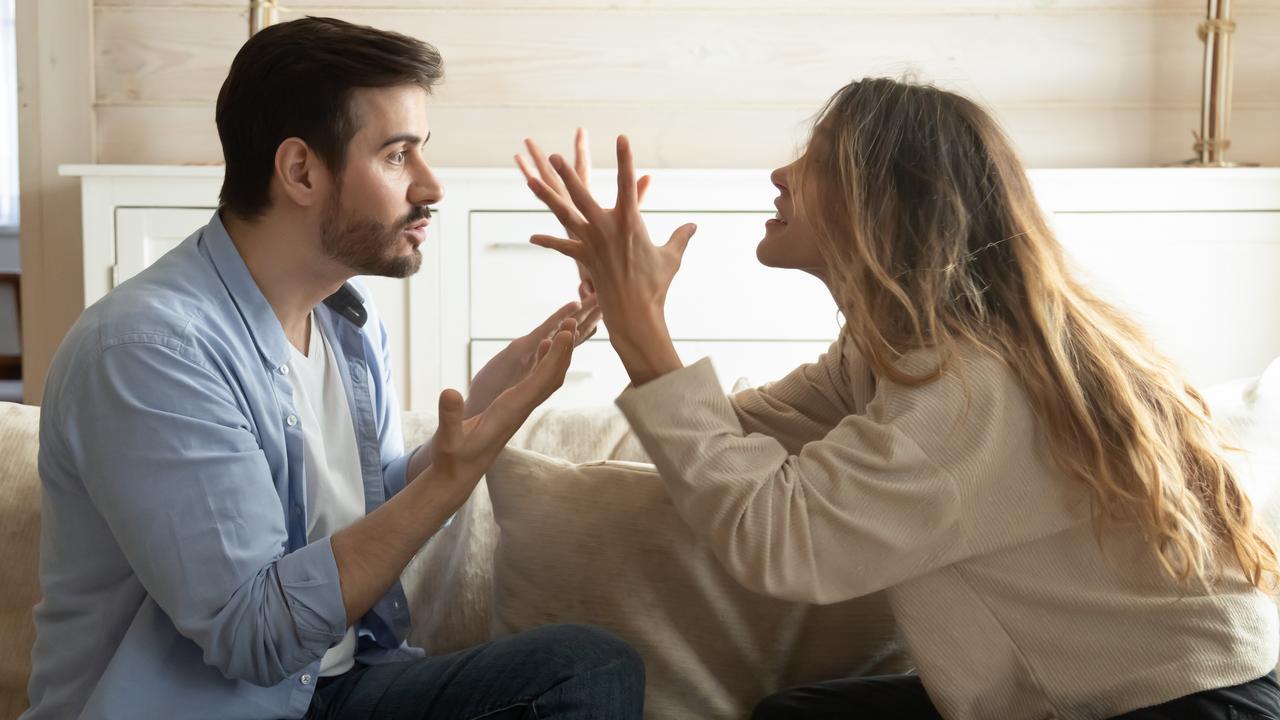Did the pandemic kill your relationship?
If pandemic-related isolation has caused havoc with your relationship, clinical psychologist Elisabeth Shaw explains how to get things back on track.
When the pandemic hit, many of us searched for positives – especially in our relationships. Amidst all the turbulence, could this finally mean more time spent time together, without work taking a front-row seat? More leisurely dinners exploring new recipes? Deeper conversations? A rekindled sex life?
While that was certainly the case for some, for others, nothing could be further from the truth. Many couples are feeling more adrift than ever, reinforced by the guilt or disappointment that multiple lockdowns weren’t quite the golden opportunity for ‘special time’ as they hoped.
For more articles like this visit Body + Soul
But it doesn’t mean that you and your partner aren’t right for each other anymore. A lot of the frustrations you may be feeling right now have some very valid and well-researched reasons behind them. Here are a few.
More time with someone also means more time with their perceived flaws
When you’re around each other all the time, there can be so many things to feel irritated about – dishes not done, beds unmade, clothes left on the bathroom floor. It’s hard to explain the frustration away by assuming your partner was short on time and rushing out the door, especially when you can see them sitting at the dining room table on a Zoom call.
Unfairness and inequity in household labour have become magnified, different styles in home management have surfaced, and we have been able to observe our partners’ work habits we’d normally be protected from – and don’t always admire. At the end of the day, you might be more ready for a fight than to race one other to bed.

Absence makes the heart grow fonder
This is one of those cliches that’s actually true. Despite what you’d expect, intimacy can require distance. Successful couples navigate separation and togetherness, closeness and distance, in balance. Some couples thrive in proximity. But for many, a stronger sense of emotional and physical independence is needed to long for connection.
Too much time together can mean there’s less news, less to talk about and, unsurprisingly, less interest is doing even more in tandem. Passion can require us to see our partners in a new light, and to have enough time apart for desire and longing to build.
Sliding into negative patterns
In the early days of the pandemic, bike sales spiked as we exercised together on empty roads. Collectively we baked sourdough, tackled puzzles, and jumped online to connect with family and friends with anything from group chats to virtual dance class.
But quickly, many turned to having food and wine delivered, extending their work hours, and redefining fun by taking up gaming or online gambling. The novelty of online catch ups with mates grew old, fast. No matter how you look at it, for many, isolation proved to be miserable – even for those in a relationship.
A significant benefit of being in a settled relationship is always having one another to lean on and support through dark times. But in a prolonged health crisis like this, having a partner didn’t entirely protect us. Many couples became isolated and depressed together, inadvertently dragging each other down rather than lifting each other up.

Couple connection requires self-reflection
Each person has to be in good shape to bring a spark to the relationship. The old adage of being ‘two halves of a whole’ is pretty unattractive if each half isn’t bringing their best selves.
If one of you is lost in work, stuck on the couch, ignoring social events and friends, has stopped self-care, or barely gets out of their pjs anymore, it’s certainly not going to ignite any passion.
How to turn things around
If any of the above is resonating with you, don’t worry – it’s not necessarily a sign that the relationship is beyond repair. Here are some tips and questions to ask yourself, which might help if you’re feeling stuck.
1. Assess your own behaviours before others. When we long for a good relationship, it’s too easy to focus on the other person’s actions and blame them for sabotaging our efforts. Hand on heart: how do you feel about yourself right now? Would you be attracted to yourself as a partner at the moment, either physically or emotionally?
2. Practise self-care. Spending time apart is important. If you’re working separately at home, this might feel unjustified as you’ve already been in different rooms all day.
But going for a solo walk at the end of the day, ringing a friend, or ducking to the shops by yourself can all be ways to reclaim your own time and shift gears.
We used to use the commute home for this sort of transition. Now, we have to create the mental shift in other ways.

3. Get better at time management. With less time spent commuting, many people have been tempted to work longer and longer hours, giving more to our jobs at the expense of our relationships. Are you leaving enough time in your day to connect with each other? Are you still doing your share of housework or child care?
4. Remember the romance. Don’t forget the importance of scheduling date nights and time to be romantic with each other.
Are you thinking about what you might bring to the table when you spend time together? Are you keeping up with your hobbies? Do you have interesting things to say? If you want closeness with your partner, how might you create a seductive environment?
And no, just getting out of your trackies at the end of the day might not cut it to capture your partner’s interest.
Connection with loved ones is equal parts what we bring to the moment, what we receive, and how we respond. During lockdowns, we could judge our relationships harshly for being as lacklustre as everything else.
But the past few years have tested us all in unfamiliar ways, and it’s helpful to remember that tension with our partners has been a common experience for many.
With the world finally settling into that ‘new normal’ we’ve all been talking about, now is a great chance to look at things objectively and take action to improve your connection with each other.
Elisabeth Shaw is a clinical psychologist and CEO of Relationships Australia NSW.
This article originally appeared on Body + Soul and was reproduced with permission





